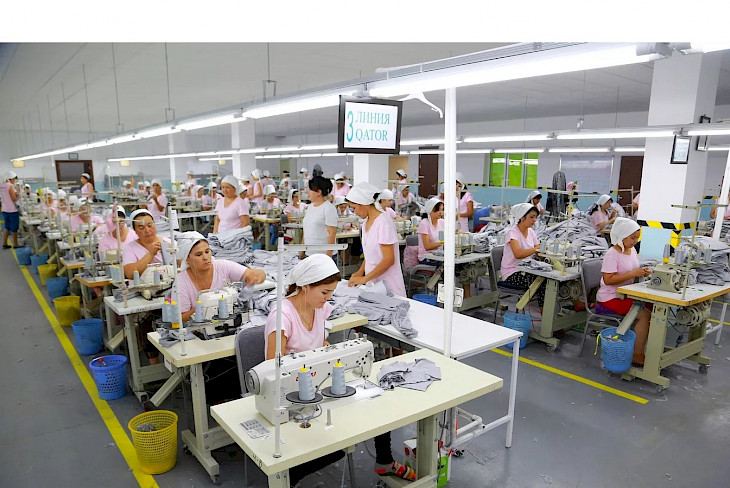President of Uzbekistan Shavkat Mirziyoyev held a meeting to discuss measures to further enhance the effectiveness of reforms in the textile and leather industries, according to the press service of the President of Uzbekistan.
During the meeting, it was emphasized that these industries play a crucial role in ensuring employment and boosting the country’s exports. Currently, they employ 430,000 people, with the light industry accounting for 14% of total production and 16% of exports.
"However, in today’s challenging times, the situation in foreign markets is changing rapidly. This has led to a decline in export prices: yarn by 9%, fabrics by 15%, and finished products by 13%. Additionally, there has been a drop in demand for finished products in key export destinations," the participants noted.
Measures to adapt to these conditions and fully mobilize internal resources were discussed at the meeting.
From January to November 2024, textile exports amounted to $2.6 billion. It was noted that the industry’s existing potential allows for significant growth in this figure.
Given the decline in global cotton fiber prices, it was highlighted that increasing deep processing of fiber and yarn is essential. Additional support measures for fabric production and dyeing enterprises have been outlined. Officials were tasked with increasing the yarn processing level to 70%.
Furthermore, the abolition of the 10% export duty on sheep and goat hides this year facilitated export contracts worth $3 million. The President instructed that this practice continue next year to further increase export volumes.
Reports from responsible officials on measures to ensure raw materials for leather enterprises and future plans were presented during the meeting.
It was noted that the leather industry faces an acute shortage of mid-level specialists—cutters, seamstresses, and craftsmen. Currently, only 167 specialists graduate annually in this field. To address this, it was proposed to implement a dual education system, connecting leading enterprises in Andijan, Namangan, Fergana, Samarkand, and Tashkent regions with local technical colleges.
Plans for the coming year were also announced at the meeting.
It was stated that more than $2 billion in foreign investment is expected to be attracted to the light industry, with 82 large projects to be implemented and 25,000 new jobs created. The goal is to increase textile exports to $4 billion and leather product exports to $250 million.
CentralasianLIGHT.org
December 13, 2024

